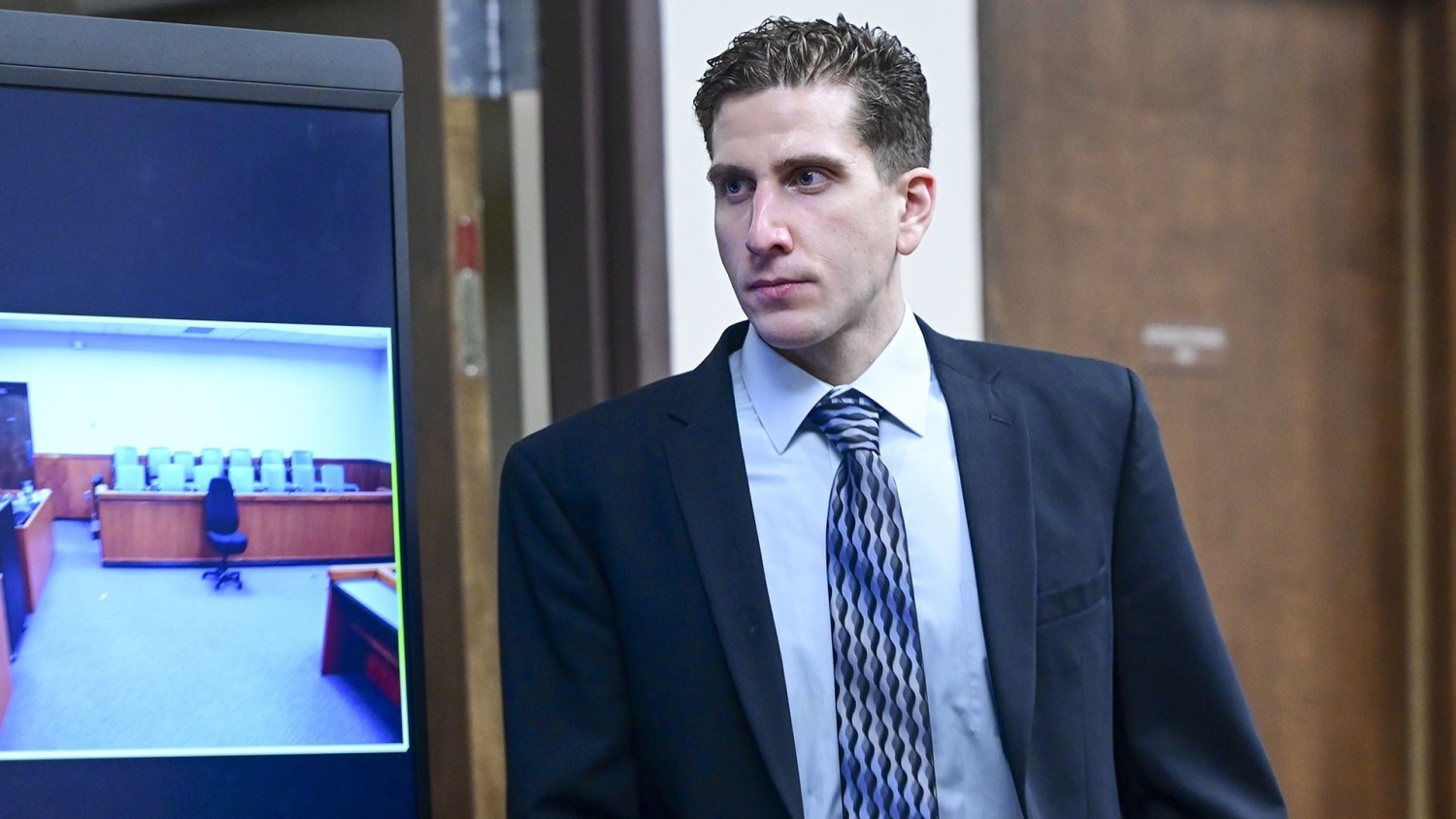
News! Bryan Kohberger case: Idaho prosecutors ordered to disclose genetic genealogy evidence in Bryan Kohberger investigation. Let’s find out more here: age.edu.vn
- Shocking News! Hervy Kornegay Obituary: Remembering Dr. Hervy B. Kornegay, Sr.’s Compassionate Legacy at 90
- [Shocking news] Jennell Jaquays is dead: Know the cause of death, How did Game Designer Jennell Jaquays die?
- Tragedy Happens! Walter Vaughan: Remembering a Beloved Member of Welland Steam and Country Rally
- [Hot news] Liddell Newsham dead: What happened to Liddell Newsham, Louisiana keyboardist in Baton Rouge
- News! Lorna Moody Obituary: Sterling Massachusetts, Lorna Moody Has Died
An Idaho judge has ruled that prosecutors must share some of the genetic genealogy evidence used in the Bryan Kohberger investigation with his defense team. The details of the evidence remain sealed to protect the privacy of the individuals involved. Kohberger is accused of murdering four University of Idaho students and could face the death penalty if convicted. Find out more about this case and the implications of the judge’s decision.
You are watching: News! Bryan Kohberger case, Idaho judge makes ‘family tree’ DNA disclosure decision
Judge Orders Disclosure of Genetic Genealogy Evidence in Bryan Kohberger Investigation
In a significant development, the judge presiding over the Bryan Kohberger investigation has ruled that Idaho prosecutors must share some of the genetic genealogy evidence used in the case with Kohberger’s defense team. The decision comes amidst a gag order on the case, with the specifics of the disclosure filed under seal. Judge John Judge, in a public filing, stated that after careful review of the disputed evidence, “a portion” should be made available to the defense. To protect the privacy of the investigative genetic genealogy information, including individuals on the family tree, the specific material will be provided in a sealed order.
Extent of Discovery Disclosure Unclear
While the judge’s ruling mandates the sharing of genetic genealogy evidence, the exact extent of the discovery disclosure remains unclear. The sealed order prevents the public from knowing the full details of the evidence that will be provided to Kohberger’s defense team. This development adds an air of anticipation to the case, as both the prosecution and defense prepare to delve deeper into the genetic genealogy evidence and its potential impact on the trial.
Sealed Order to Protect Privacy of Investigative Genetic Genealogy Information

See more : Hot! Laura Carter Obituary: Remembering a Beloved Soul in Kettering, Ohio
The decision to file the specifics of the genetic genealogy evidence under seal is a measure taken to safeguard the privacy of the individuals involved in the investigation. Judge Judge emphasized the importance of protecting the sensitive information contained within the investigative genetic genealogy data, including the identities of individuals on the family tree. By sealing the order, the court aims to strike a balance between the need for transparency in the legal process and the preservation of privacy rights.
Prosecutors’ Argument and Police Findings
In the Bryan Kohberger investigation, prosecutors put forth an argument regarding the use of investigative genetic genealogy (IGG) evidence by the police. They contended that the IGG evidence was utilized solely to generate leads and not to obtain any warrants in the case. As a result, they argued that there was no obligation to disclose this evidence. However, the judge’s recent ruling has ordered the disclosure of some of the IGG evidence, indicating a potential shift in the prosecution’s stance.
Police Used IGG Evidence to Generate Leads
During the investigation, the police employed the technique of investigative genetic genealogy to generate leads in the Bryan Kohberger case. This innovative approach involves analyzing DNA samples and comparing them to public genealogy databases to identify potential relatives of the suspect. By tracing the suspect’s family tree, investigators were able to narrow down their search and gather valuable information that aided in the progression of the case. The use of IGG evidence played a crucial role in establishing leads and advancing the investigation.
Confirmation of DNA Match on Knife Sheath

A significant breakthrough in the case came when investigators confirmed a DNA match between a sample found on the knife sheath recovered from the crime scene and Bryan Kohberger’s cheek swab. This confirmation provided compelling evidence linking Kohberger to the crime. The presence of his DNA on the sheath strengthens the prosecution’s case and raises questions about his involvement in the tragic events that unfolded. The confirmation of this DNA match serves as a pivotal piece of evidence in establishing Kohberger’s connection to the crime scene.
Details of the Crime and Investigation
The Bryan Kohberger investigation revolves around a horrifying crime that took place, resulting in the loss of several young lives. The details of this tragic event shed light on the severity and impact it had on the University of Idaho community. As the investigation unfolds, key information emerges, providing a clearer picture of the events that transpired and the individuals involved.
Massacre of University of Idaho Students
The crime scene revealed a devastating scene of violence, as four University of Idaho students fell victim to a brutal massacre. Among the victims were Madison Mogen, Kaylee Goncalves, Xana Kernodle, and Ethan Chapin, all young undergraduates pursuing their education. The loss of these promising lives sent shockwaves through the university and the wider community, leaving a lasting impact on all who knew them. The investigation seeks to uncover the truth behind this tragic event and bring justice to those affected.
Alleged Stalking and Surveillance
As the investigation delves deeper into the circumstances surrounding the crime, disturbing details emerge regarding the alleged stalking and surveillance conducted by the suspect. Police records indicate that Bryan Kohberger had reportedly stalked the victims’ home on multiple occasions before the murders took place. Additionally, investigators discovered evidence suggesting that Kohberger had surveilled the victims, further raising concerns about his intentions and potential premeditation. These findings shed light on the chilling nature of the crime and the meticulous planning that may have preceded it.
Legal Proceedings and Potential Penalty
The legal proceedings surrounding the Bryan Kohberger case are underway, as the investigation progresses and the evidence is disclosed. These proceedings play a crucial role in determining the outcome of the case and the potential consequences for the accused. As the trial unfolds, the focus shifts towards the legal aspects and the potential penalties that Bryan Kohberger may face if found guilty.
Kohberger Held Without Bail

In a significant development, Bryan Kohberger is currently being held without bail. This decision reflects the seriousness of the charges against him and the potential risk he may pose to society. The court’s decision to deny bail underscores the gravity of the allegations and the need to ensure the safety of the community. As the legal proceedings continue, Kohberger remains in custody, awaiting his day in court.
Possible Death Penalty if Convicted
If Bryan Kohberger is found guilty of the charges brought against him, he could potentially face the death penalty. The severity of the crime and the loss of innocent lives may warrant such a penalty under the law. The decision to impose the death penalty, however, rests with the court and is subject to a thorough examination of the evidence and legal arguments presented during the trial. The potential for such a severe penalty adds weight to the legal proceedings and underscores the significance of the case.
Idaho prosecutors have been ordered to disclose some genetic genealogy evidence used in the Bryan Kohberger investigation. The details of the evidence remain sealed to protect privacy, but the judge ruled that a portion should be shared with Kohberger’s defense team. Prosecutors argued that the evidence was used to generate leads but not to obtain warrants, therefore not requiring disclosure. Kohberger is accused of murdering four University of Idaho students and could face the death penalty if convicted. Stay informed with the latest updates on this case. Thank you for reading!
Source: https://age.edu.vn
Category: Obituary 1